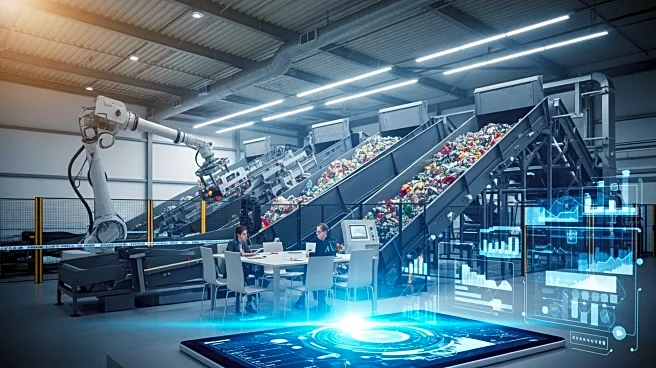What's Happening?
Accenture is undergoing significant changes as it navigates a complex landscape of AI-driven growth and federal spending cuts. The company reported strong fiscal 2025 results with a revenue of $69.7 billion, up 7% year-over-year, and a robust AI investment
strategy. However, Accenture faces challenges due to restructuring efforts and policy risks, including federal contract delays and a proposed $100,000 fee for H-1B visas. Despite these hurdles, Accenture has expanded its AI workforce to 77,000 professionals and completed over 6,000 advanced AI projects. The company is also investing $3 billion in generative AI initiatives, aiming to leverage AI for future growth.
Why It's Important?
Accenture's strategic focus on AI and digital transformation highlights the growing importance of technology in the consulting industry. The company's investments in AI could position it as a leader in the sector, potentially driving innovation and efficiency. However, the restructuring and federal spending cuts pose risks to its growth trajectory. The proposed H-1B visa fee could impact Accenture's ability to attract foreign talent, although its current reliance on such visas is limited. The outcome of these developments could influence Accenture's market position and the broader consulting industry, affecting stakeholders and investors.
What's Next?
Accenture is set to participate in key investor conferences, where management's commentary on federal spending and AI demand could impact stock performance. The company's Q1 FY26 earnings release in December will be closely watched for updates on AI bookings and restructuring savings. Accenture's ongoing optimization efforts, including workforce realignment, will continue to shape its operational strategy. The broader industry will monitor U.S. and European IT budgets and government spending priorities, which could affect Accenture's future growth and market dynamics.
Beyond the Headlines
Accenture's restructuring reflects a broader shift in the consulting industry towards AI-centric models. This transformation may lead to ethical and cultural changes within the workforce, as traditional roles are redefined. The company's focus on AI could drive long-term shifts in service delivery and client engagement, potentially setting new standards for the industry.
















